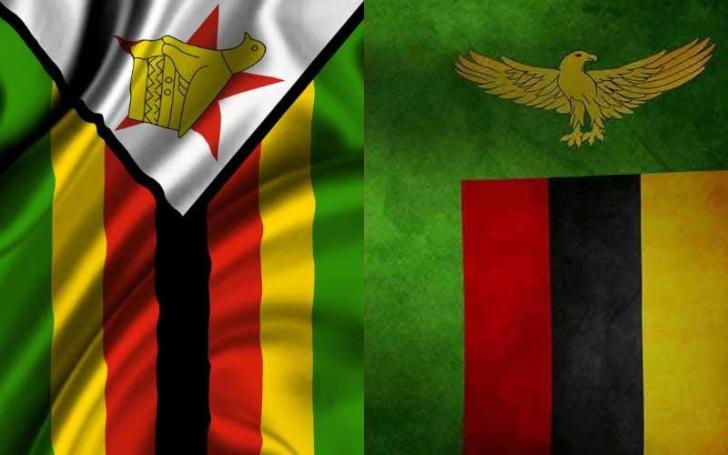News / National
Zim-Zambia relations turn sour under Hichilema's leadership
05 Nov 2023 at 06:16hrs |
2988 Views

In a sharp departure from the historical warmth between Zambia and Zimbabwe, relations have become strained under the leadership of Zambian President Hakainde Hichilema, political commentator Nobleman Runyanga has stated.
Runyanga asserts that the current Zambian administration has neglected the deep-rooted "Siamese twin" bond that once flourished under former Zambian leaders such as Edgar Lungu and Michael Sata.
The United Party for National Development (UPND), led by President Hichilema, has been accused of instigating aggressive social media and press campaigns against Zimbabwe's leadership, particularly targeting President Emmerson Mnangagwa and the ruling party, ZANU PF.
Joseph Kalimbwe, a member of the UPND, has been singled out by Runyanga as a chief provocateur, allegedly using his social media influence to cast President Mnangagwa in a negative light, labeling him a "dictator" and a "looter," while painting the liberation movements as embodiments of authoritarianism.
Runyanga points out that the discord between Zimbabwe and Zambia was seeded pre-election and not only persisted but escalated during and after the election period.
"It was an incessant barrage of insults, unleashed almost hourly, and it seemed calculated to provoke a response," Runyanga stated.
According to Runyanga, the once-restrained members of ZANU PF felt compelled to retaliate as the attacks grew more personal and unfounded.
Runyanga commented, "This was not the neighborly conduct we've seen in the past. The UPND, using figures like Kalimbwe, spoiled the relationship, forgetting the shared history and mutual respect that had long bolstered the ties between our nations."
Runyanga added that the fallout marks a significant shift in regional dynamics, given the countries' intertwined liberation history and past collaborations.
As the accusations of authoritarianism from the Zambian side continue, there is a call for introspection and a return to the diplomatic etiquette that has long characterized the inter-state relationship.
Runyanga urges, "There needs to be a concerted effort to rebuild bridges, to foster the spirit of unity that once defined us."
The decline in relations has not only been a topic of consternation among political analysts but has also caught the attention of regional bodies interested in maintaining stability within the Southern African region.
With these developments, it remains to be seen how both nations will navigate this diplomatic quagmire and if they can return to their former camaraderie, essential for regional cooperation and progress.
Runyanga asserts that the current Zambian administration has neglected the deep-rooted "Siamese twin" bond that once flourished under former Zambian leaders such as Edgar Lungu and Michael Sata.
The United Party for National Development (UPND), led by President Hichilema, has been accused of instigating aggressive social media and press campaigns against Zimbabwe's leadership, particularly targeting President Emmerson Mnangagwa and the ruling party, ZANU PF.
Joseph Kalimbwe, a member of the UPND, has been singled out by Runyanga as a chief provocateur, allegedly using his social media influence to cast President Mnangagwa in a negative light, labeling him a "dictator" and a "looter," while painting the liberation movements as embodiments of authoritarianism.
Runyanga points out that the discord between Zimbabwe and Zambia was seeded pre-election and not only persisted but escalated during and after the election period.
"It was an incessant barrage of insults, unleashed almost hourly, and it seemed calculated to provoke a response," Runyanga stated.
According to Runyanga, the once-restrained members of ZANU PF felt compelled to retaliate as the attacks grew more personal and unfounded.
Runyanga added that the fallout marks a significant shift in regional dynamics, given the countries' intertwined liberation history and past collaborations.
As the accusations of authoritarianism from the Zambian side continue, there is a call for introspection and a return to the diplomatic etiquette that has long characterized the inter-state relationship.
Runyanga urges, "There needs to be a concerted effort to rebuild bridges, to foster the spirit of unity that once defined us."
The decline in relations has not only been a topic of consternation among political analysts but has also caught the attention of regional bodies interested in maintaining stability within the Southern African region.
With these developments, it remains to be seen how both nations will navigate this diplomatic quagmire and if they can return to their former camaraderie, essential for regional cooperation and progress.
Source - Byo24News
Join the discussion
Loading comments…


































